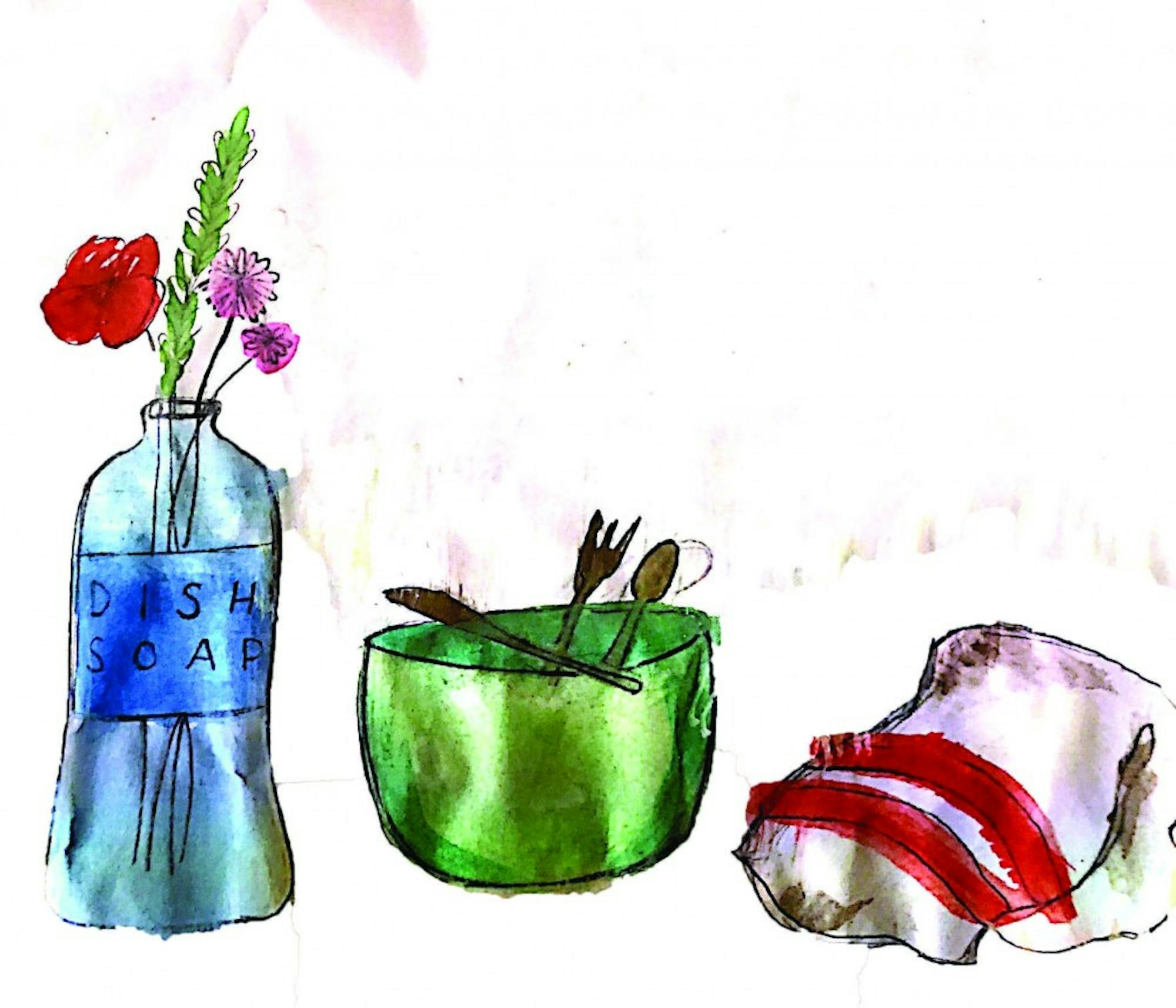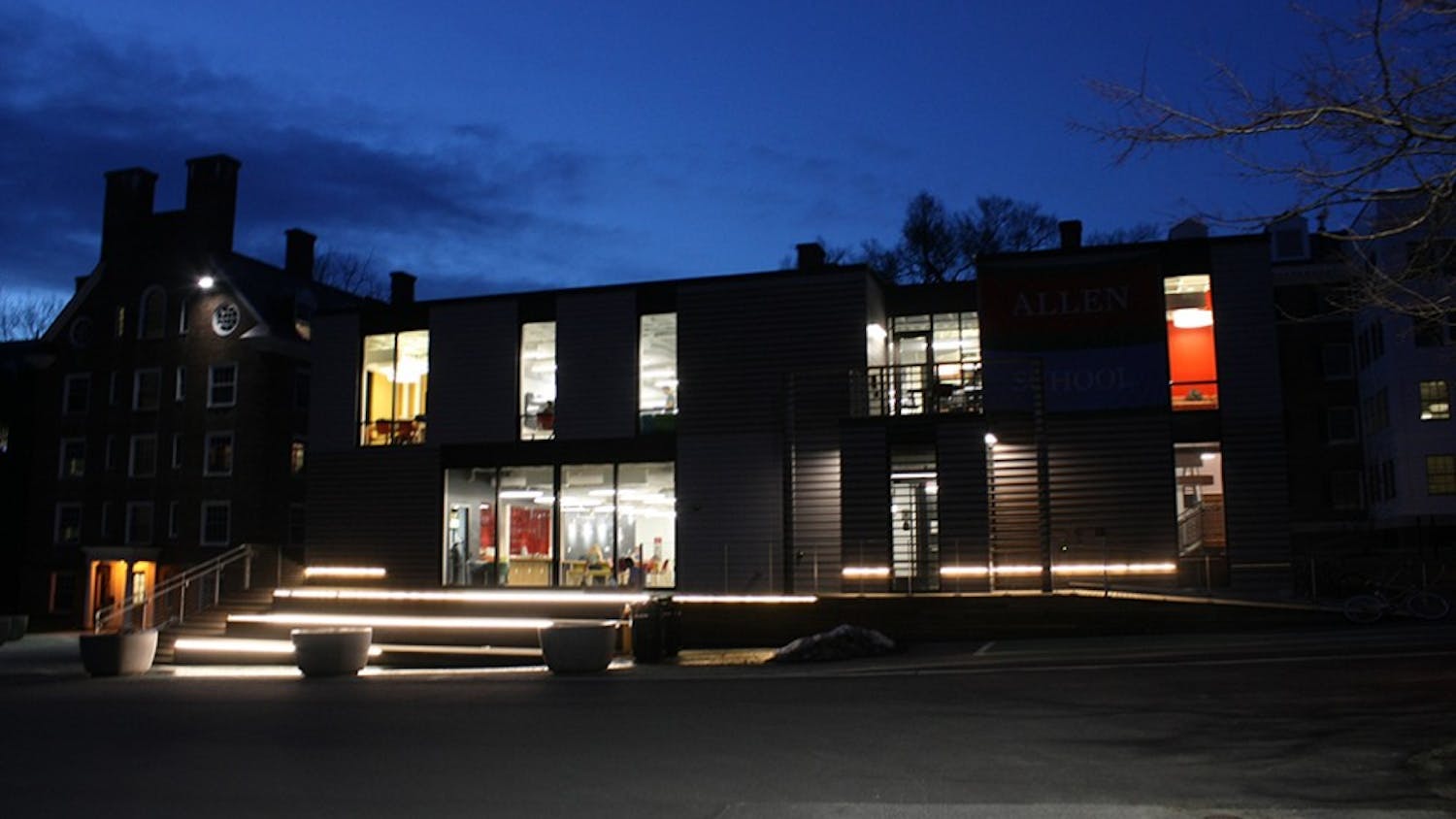A paper plate award hanging on the kitchen wall of Dartmouth’s Sustainable Living Center reads “SLC — Most Likely to … Make a House a Home!” The Sustainable Living Center, founded in 2008, is designed for students interested in learning about sustainability as it relates to social justice, innovation, and environmental stewardship. However, it is the sense of community fostered by the SLC that truly defines the experience of living there, according to Anna Matusewicz ’20, current house manager of the SLC, who described the kitchen as the “unwavering heart” of the SLC community.
“This place literally changed the course of my life at Dartmouth,” Matusewicz said. “It’s a place of high happiness and instant emotional support. Just really magical.”
The word “sustainability” often conjures images of metal sporks, Nalgenes and emails reminding you to “BYOB” (Bring Your Own Bowl). Although the SLC is healthily stocked with reusable containers, sustainability there reaches far beyond material images most commonly associated with the idea. While the elements of sustainability such as “Reduce, Reuse, Recycle” remain important values for the residents of the SLC, the space cultivates a mindset of personal sustainability, or how one can reduce their individual impact.
Matusewicz and other SLC residents detailed the SLC’s history. They explained how, prior to the early 2000s, the building the SLC is in was one of the oldest, least efficient and least popular housing facilities on campus. With the SLC’s founding in 2008, emissions from North Hall decreased by approximately 40 percent in the first term of the SLC’s existence. Matusewicz attributed this decrease in emissions mainly to the change in mindset of the students living there.
Matusewicz explained how SLC residents make personal sustainability goals each term in addition to helping with house chores including cooking, cleaning and shopping, which she said teaches the residents about the nuances of consumer choices regarding food and sustainability.
“People feel responsible with chores and want to take care of them,” Matusewicz said.
Kellen Appleton ’20, a sustainability intern who has lived in the SLC since his sophomore year, explained how SLC residents also maintain a house garden, which provides some homegrown vegetables. He also emphasized that residents are committed to purchasing local, organic, seasonal foods and ingredients, though he joked that there may be a few mangoes in the kitchen at the moment.
Appleton also explained how at the SLC, sustainability does not necessarily mean living on the cutting edge of least-impact lifestyles — which would be unaffordable and difficult for most students — but rather, means working toward an ethos of sustainability.
“It’s more of this community-building aspect of having this different balance of people, and it’s more varied and less focused on living really hard core and more on living as sustainably as we possibly can,” Appleton said. “It’s more like, ‘Let’s bring people together who are interested in this issue, and let’s have a conversation about it and focus on how me can make individual changes, but also how we can make bigger changes by forming a community around this one subject.’”
Appleton and Matusewicz both talked about how SLC community Sunday night dinner conversations often center around issues of sustainability, and both say this has enriched their experience.
“The SLC is a place where I can keep sustainability in my life without the time commitment of a job,” Matusewicz said.
Lucas Rathgeb ’22, another SLC resident, described some of the ways the community practices sustanability, including eating most meals on campus, contributing to more sustainable waste and food-purchasing habits, reducing electricity and water use, and minimizing single-use goods. Rathgeb also noted that these practices do not tend toward the extreme.
“For example, it’s not ‘shameful’ to eat meat, people at the SLC just recognize it’s not the most sustainable thing,” Rathgeb said.
Like Appleton and Matusewicz, Rathgeb emphasized the fact that the SLC is a home. All three SLC residents spoke to the fact that not everyone living there has a significant knowledge base regarding environment consciousness, but Appleton said that having a house full of people who care about sustainability creates a continuous conversation.
“Rather than trying to get people who are already super involved in sustainability, the SLC is focused on building each other,” Appleton said. “It’s centered on learning and meeting people where they’re at.”
Both Appleton and Matusewicz mentioned that some students have suggested renaming the “Sustainable Living Center” to the “Sustainable Learning Center.”
Abigail Bresler ’21, another SLC resident, said that she learned how to cook and bake from her peers at the SLC and described having parts of everyone’s home incorporated into the home that now exists at the SLC. Bresler also described the SLC as her home at Dartmouth and the place she thinks of when she is away from Dartmouth.
“Honestly, the SLC has been the best part of my Dartmouth experience,” Bresler said.
Bresler attributed the sense of community at the SLC to the culture of vulnerability created by upperclassmen there. Bresler said creating spaces where people are comfortable leads to empathy for others.
“The SLC creates this space of vulnerability that allows people to kind of open up and explore parts of themselves that are often closed off in other spaces at Dartmouth,” Bresler said. “I see people really try to make sure the way they’re living their lives is sustainable for the future, resisting that burn-out culture and really doing what they need to do to take care of themselves and take care of others at the SLC.”
Bresler also said that being sustainable, even if one does not live in the SLC, is something everyone is capable of.
“Most people in the world have the capacity for this sort of special deep empathy, but it’s the culture the space at the SLC creates,” Bresler said.




